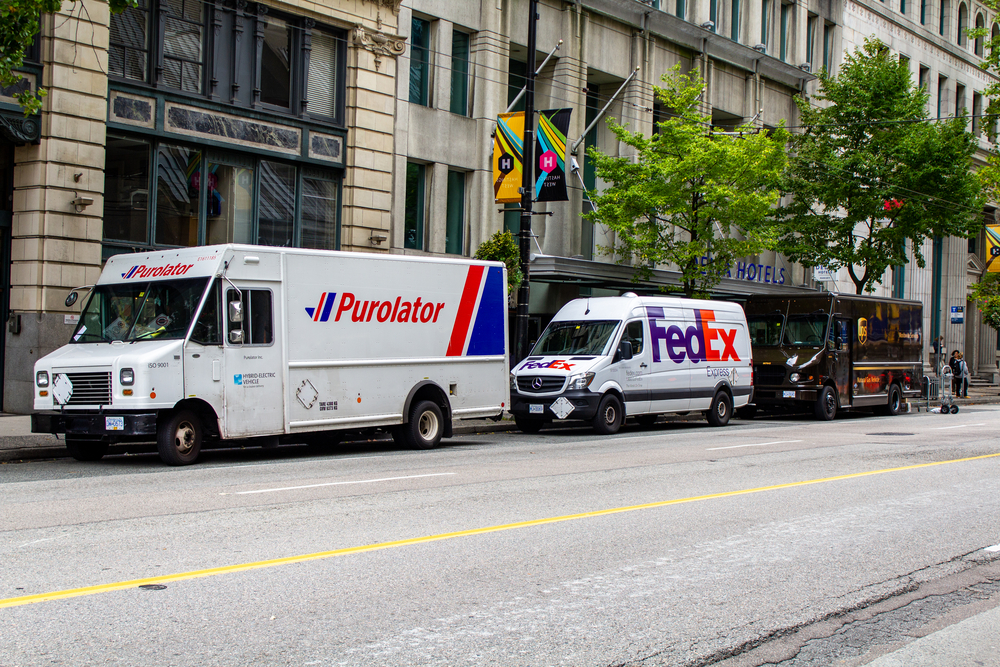

High Delivery Volumes Hurt UPS & FedEx’s Margins
If there is one industry most impacted by the Coronavirus pandemic, it may be the shipping and logistics business. Widespread sheltering-in-place and staying at home has led to a massive uptick in eCommerce order volumes, which the major shipping carriers are all tasked to deliver. However, this surge in high delivery volume from COVID-19 may actually be hurting UPS and FedEx, whose online package products are much less profitable than their other services.
The Strange Relationship Between High Delivery Volumes and Profitability
One would assume the growing number of online orders must mean that private shipping carriers are rejoicing. With the amount of packages entering their networks, UPS and FedEx must certainly be ushering in record profitability. However, this isn’t exactly the case. It’s true that eCommerce deliveries account for the quickest-growing revenue drivers of these carriers’ businesses. Even so, private carriers still heavily rely on business-to-business and retail deliveries to make money. With retail outlets and businesses around America temporarily shuttered (some permanently), UPS and FedEx are now seeing their revenue mainly come from deliveries for online sales.
The problem is, profits from carrying out online deliveries are significantly less than FedEx and UPS make on normal retail and B2B deliveries.
Why Packages from Online Sales are Less Profitable for Private Carriers
Private carriers structure online deliveries to be less profitable than business deliveries because of the inconsistency in orders. Prior to the pandemic, shoppers tended to purchase goods online more sporadically. However, Coronavirus has caused online orders to now become a daily occurrence, instead of a one-off purchase here or there. These days, consumers shop online for their necessities as well as for their non-essential goods. In fact, during March of 2020, Adobe Analytics reported a 100% increase in online orders for groceries. This, in turn, resulted in a staggering 25% jump in total online orders for the same time period.
As major corporations like Facebook and Twitter start allowing employees to work from home indefinitely, the stay-at-home lifestyle will only continue to become a more permanent part of culture. So, unless private carriers like FedEx and UPS find another way to structure their business models, people growing comfortable with staying at home may suggest a turning point to perpetually lower profit margins.
Package Services are the Fastest-Growing Revenue Driver for the Postal Service
The surge in parcel volume may hurt UPS and FedEx, but USPS is in a unique position to capitalize. Simply put, USPS is the premier carrier for eCommerce deliveries, with its mix of affordable rates and quick delivery times. Also, through direct partnerships with eCommerce retailers and shipping software companies, package services now account for the Postal Service’s most profitable products (in terms of margins, and not overall volume). In fact, the Postal Service’s recently-released 5-year strategic plan shows a near-double in package volume since 2007.
Unlike private carriers, the Postal Service’s relationship between revenue and growing parcel volume is directly correlated. The more packages USPS delivers, the more money the organization sees.
Interestingly, FedEx and UPS may start shying away from accepting more online deliveries in order to protect profitability. Recently, FedEx even went so far as to cap shipments from major retailers. Retail businesses need to ship products to customers somehow, and so, they will turn to USPS to carry out delivery. Thus, the Postal Service will then be perfectly positioned to claim a bigger share of the online delivery market…and make more money as a result.


Be the first to comment!